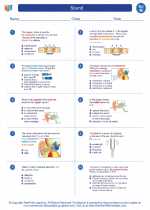Genetic Factors
Genetic factors refer to the hereditary information that is passed down from parents to offspring. These factors play a crucial role in determining an individual's traits, physical characteristics, and susceptibility to certain diseases. The study of genetic factors is a fundamental aspect of the field of genetics and has far-reaching implications in various areas of science and medicine.
Study Guide for Genetic Factors
- Understanding DNA: Genetic factors are encoded in the DNA, the molecule that contains the genetic instructions for the development and function of living organisms. Students should familiarize themselves with the structure of DNA, the role of genes, and how genetic information is transmitted from one generation to the next.
- Mendelian Genetics: Explore the basic principles of inheritance as described by Gregor Mendel. Understand concepts such as dominant and recessive traits, Punnett squares, and the inheritance of genetic disorders.
- Human Genetics: Delve into the study of human genetic factors, including the inheritance of traits, genetic disorders, and the role of mutations in human evolution and disease susceptibility.
- Genetic Variation: Learn about the sources of genetic variation, including genetic recombination, mutations, and the role of sexual reproduction in generating diversity within a population.
- Genetic Engineering: Explore the modern techniques and applications of genetic engineering, including gene editing, genetically modified organisms (GMOs), and the ethical considerations surrounding genetic manipulation.
- Medical Implications: Understand how genetic factors contribute to the risk of developing certain diseases, the role of genetic testing in healthcare, and the potential for personalized medicine based on an individual's genetic profile.
By mastering the concepts related to genetic factors, students can gain a deeper understanding of the role of genetics in shaping living organisms and the potential impact of genetic research on various scientific and medical fields.
.







